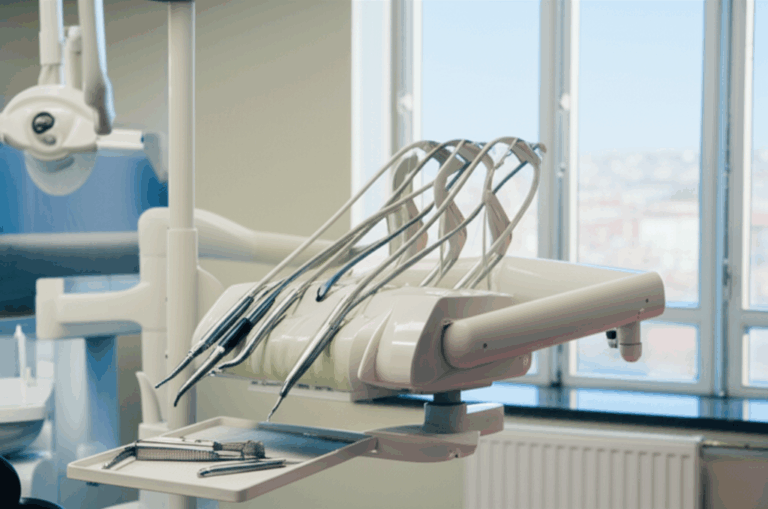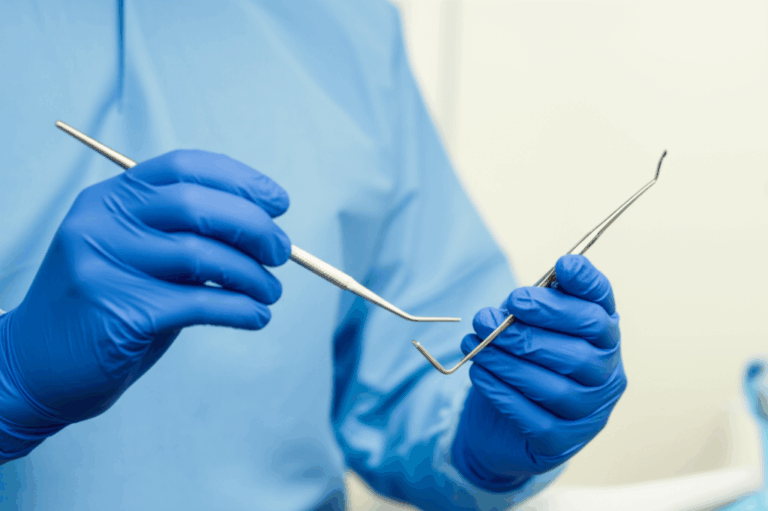
Are Chain Dentists Good? An Unbiased Look at Corporate vs. Private Dental Care
Have you ever sat in a dentist’s waiting room, looked around, and wondered, “Is this place run by a big company? Does that matter?” More and more, big dental companies—called dental chains or Dental Service Organizations (DSOs)—are popping up everywhere. They advertise cheap prices, easy scheduling, and the newest tools. But you might worry: Am I just another customer here? Will I see a different dentist every time, or be rushed? Is there a downside hiding behind those nice ads and deals?
Choosing a dentist is important. Teeth and gums affect how you look, eat, and feel. You deserve clear facts, so you can pick the best dentist for you and your family.
In This Article
- What Are Chain Dentists (Dental Service Organizations – DSOs)?
- The Upsides: Benefits of Choosing a Chain Dentist
- The Downsides: Potential Concerns with Chain Dentists
- Chain vs. Private Practice: A Comparative Snapshot
- How to Evaluate Any Dental Practice (Chain or Private)
- Healthy Takeaways: Your Next Steps for Confident Dental Decisions
What Are Chain Dentists (Dental Service Organizations – DSOs)?
Let’s make this simple. Chain dentists are dental offices managed or owned by big companies, often with investors involved. These companies are called Dental Service Organizations (DSOs). You might see names like Aspen Dental, Heartland Dental, or Gentle Dental in lots of cities. Some DSOs own many offices. Others just manage the business side—like billing, hiring, and supplies—while dentists focus on treating patients.
Here’s how chain dentist offices usually work:
- Central office: The main company handles hiring workers, paying salaries, advertising, and gets good deals with supply companies and sometimes things like a china dental lab.
- Dentists work for the company: Dentists might be regular employees, or sometimes they can buy a small part of the business.
- Same rules everywhere: Things like appointment reminders, x-rays, cleanings, and treatment plans often follow set company rules.
In a private practice, the dentist usually owns the office or shares it with just a few other dentists. They make their own choices about everything, even which dental lab makes your crown.
The Upsides: Benefits of Choosing a Chain Dentist
Big dental chains offer a lot of things people like. Here’s why you might choose a chain dentist.
Convenience and Accessibility
Life can be busy. If you need a dentist at odd times, chain dental clinics usually have:
- Longer hours (early, late, weekends)
- Lots of locations—useful if you move or travel
- Easy booking by phone or online
- Walk-in visits are often okay
If you’re busy, a chain dentist can fit your schedule better.
Cost-Effectiveness and Insurance
Are DSOs really cheaper? Sometimes, yes, because:
- Buy in bulk: Big companies buy lots of supplies, so they pay less and can charge you less.
- Takes most insurance: DSOs usually accept many insurance plans, even Medicare or Medicaid, and offer payment plans.
- Clear prices: They often show prices for cleanings, x-rays, or first visits, so you know costs right away.
It’s like shopping at a big box store—big companies can offer lower prices.
Modern Technology and Facilities
Corporate offices usually have up-to-date stuff:
- Newest equipment: Digital x-rays, cameras in your mouth, and sometimes even 3D-printed crowns from a digital dental lab.
- Very clean: Rules for cleaning and infection control are strict and checked often.
- Same look everywhere: Offices look fresh and modern, no matter where you go.
You’re likely to get the same modern tools and standards wherever you visit.
Range of Services
Need routine cleanings, braces, implants, or urgent help?
- One place for most care: DSOs usually have general dentists, hygienists, and sometimes specialists (like for braces or extractions) in one building or network. Fewer trips across town.
- Easy records: Electronic records make changing locations or moving easier—your info goes with you.
You save time and steps.
The Downsides: Potential Concerns with Chain Dentists
But, there might be downsides. Here’s what to look out for with dental chains.
Quality of Care and Dentist Turnover
Big companies want to make money. Sometimes that’s a problem:
- Money first? A few DSOs have been in the news for selling extra treatments or charging for things you might not need. Most don’t, but some do push for more expensive work.
- Dentists change a lot: There’s more dentist turnover—many leave each year. This means you might meet a new dentist every visit, which makes care less personal.
- Less experience: Many new dentists start in DSOs to get practice. That’s not always bad, but it often means your dentist is newer to the job.
If you like seeing the same dentist every time, this might matter to you.
Less Personalized Patient Experience
Big chains have lots of patients. This can mean:
- Quick appointments: Sometimes you feel rushed, like you’re on a conveyor belt.
- Not as personal: New staff might not remember you or your history. No small talk or friendly catch-ups.
- Hard to build relationships: Many chain offices can’t offer long-term, one-on-one care.
That “family dentist” feeling is harder to find at big chains.
Standardized Treatments and Selling Extra Services
Chain offices use the same rules everywhere, but this can mean:
- Not flexible: Treatment might follow company steps, not your own needs.
- Push to buy more: Some people say they’re offered lots of extra (and maybe unneeded) treatments, like teeth whitening or fancy procedures.
- Sales goals: Some chains have targets for services sold. Not all, but some do.
Remember, your health comes first, not selling you stuff.
Dentists Have Less Control
In chains:
- Less say over decisions: Company rules may tell dentists what hours to work, which materials to use (like which zirconia lab makes your crown), or even how long to spend with you.
- More staff changes: Dentists and other workers may leave more often.
- Dentist is not the boss: You might see changes in who cleans your teeth or runs the front desk.
In private offices, the dentist is in charge. In chains, it’s the company.
Chain vs. Private Practice: A Comparative Snapshot
Here’s a simple table to compare chain and private dental offices:
| Feature | Chain Dentist (DSO) | Private Practice |
|---|---|---|
| Ownership | Company/investors, sometimes dentist buys in | Owned by local dentist(s) |
| Focus | Speed, efficiency, company systems | Personal care, relationships |
| Cost | Often lower, clear prices | Depends, can be higher, more flex |
| Continuity | Lower; dentists change a lot | Higher; same dentist many years |
| Technology | Up-to-date, same everywhere | Different (owner’s budget matters) |
| Decision-Making | Company led | Dentist in charge |
| Access | More locations, more hours, more payment options | Less locations, fewer hours |
| Insurance | Takes many plans, including Medicaid/CHIP | Might take fewer plans |
If you want fast, easy care with modern tech, a chain might suit you. If you care about seeing the same friendly dentist and don’t mind different hours or prices, private may work best.
How to Evaluate Any Dental Practice (Chain or Private)
Your mouth matters most! Here’s a basic guide to check any dental office:
1. Check Credentials and Experience
- License: Is your dentist licensed in your state? Look it up online.
- Special skills: For things like implants or braces, check if your provider has training for that job.
- How long? How many years have they been doing this job?
2. Read Reviews and Ask Around
- Online reviews: Google, Yelp, or Healthgrades show what real people say. Look for patterns, not just the stars.
- Ask others: Friends, family, coworkers, or your doctor may have good suggestions.
3. Know the Plan and Costs
- Ask for a written quote: It’s your money, don’t be shy.
- Get another opinion: For major work like implants or full sets of teeth, ask another dentist too.
- Clear info: Are things explained simply? Any pressure to say yes fast? You should have time to decide.
4. Look at the Office
- Is it clean? Does it look and smell neat? Are tools washed well?
- Staff: Are they friendly and answer questions? Are records correct?
- Atmosphere: Do you see the same people, or new ones each time?
5. Judge How They Talk to You
- Listen: Does the dentist pay attention to your worries, or seem distracted?
- Easy to understand: Are things explained in simple terms?
- Respect: Do they listen to your wishes, like spending less or fixing just one tooth?
Trust your feelings. If it doesn’t feel right, try somewhere else.
Healthy Takeaways: Your Next Steps for Confident Dental Decisions
Here are the big lessons—simple and clear:
- Both DSOs (chain dentists) and private practices have good and bad points. Neither is always better.
- Chain dentists are easy, cheap, and modern, but might lack personal touch and long-term staff.
- Private offices keep the same dentist and offer more personal care, but may not have great hours or newest tools.
- The best choice depends on what YOU want most: low price, easy times to visit, same dentist, or the newest gadgets.
- Always check: Are they licensed, do they have good reviews, and do they answer your questions?
- Get a second opinion for big dental jobs, like crowns or veneers.
- It’s your mouth! Pick a place where you feel happy, safe, and respected.
Bonus Box: Data Snapshot—DSO vs. Private Practice (Based on Industry Numbers)
| Feature | Corporate (DSO) | Private Practice |
|---|---|---|
| Growth | Fast (10% of offices in 2010, ~30% by 2021) | Slowly shrinking, more dentists sell |
| Dentist Turnover | 20-30% per year | Low, many dentists stay decades |
| Patient Satisfaction | Mixed reviews | Usually higher, more loyal patients |
| Treatment Cost | Lower for basics, but some upselling | Varies, flexible, sometimes higher |
| Technology | Modern, digital tools common | Depends on office, sometimes older tech |
| Insurance/Billing | Takes most plans, even Medicaid or Medicare | Fewer plans, more flexible for regulars |
| Access to Care | High: more hours, places, walk-ins | Lower: less hours, few locations |
| Rules & Monitoring | More outside checks for billing and quality | Normal rules from state/local offices |
Empowering Conclusion: The Smile-Confident Path Forward
Finding the right dentist is about what makes YOU feel good, not just “chain or private.” Some DSOs really do put patients first, and some private offices offer the best tech and long hours. The right choice comes down to asking the right questions and trusting your own feelings.
What can you do now?
- Write down what matters most to you: cost, hours, same dentist, newest technology.
- Ask questions at any office—you deserve honest answers.
- Don’t rush—get second opinions and take your time.
- Remember: Taking care of your teeth means protecting your health, looks, and quality of life.
Still unsure? Book a first visit, ask your questions, and see how they treat you. Good dental teams want to earn your trust and help you have your healthiest smile.
Medically reviewed for clear and accurate info by a dentist. Sources include the American Dental Association, Dental Economics, and more health experts.
(P.S. Want to learn more about crowns, digital dental labs, or the process for getting a great ceramic veneer? Check out more tips and guides in our Knowledge Center!)
Smile with confidence. Ask questions. Your health, your choice.








